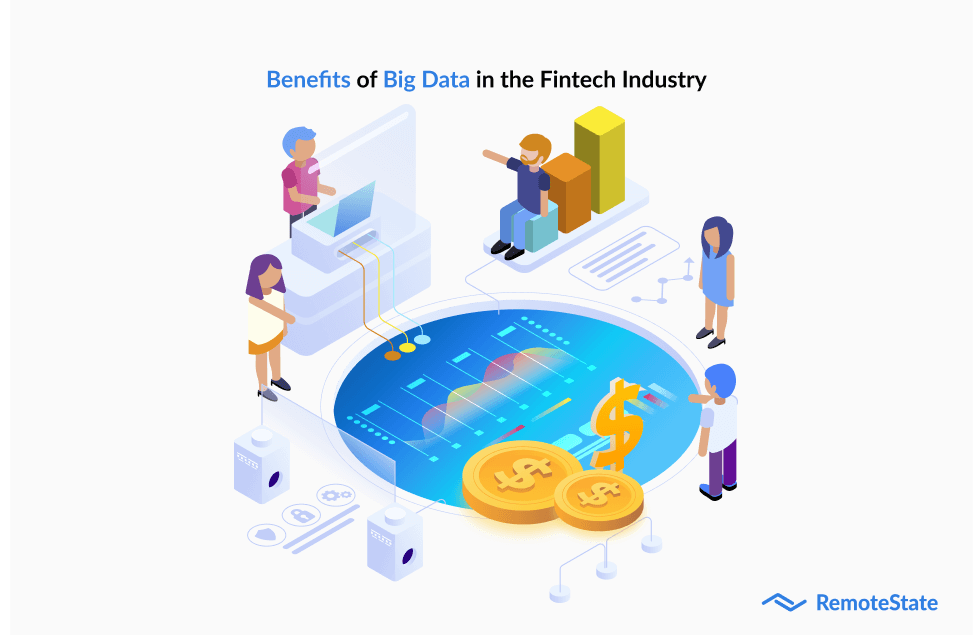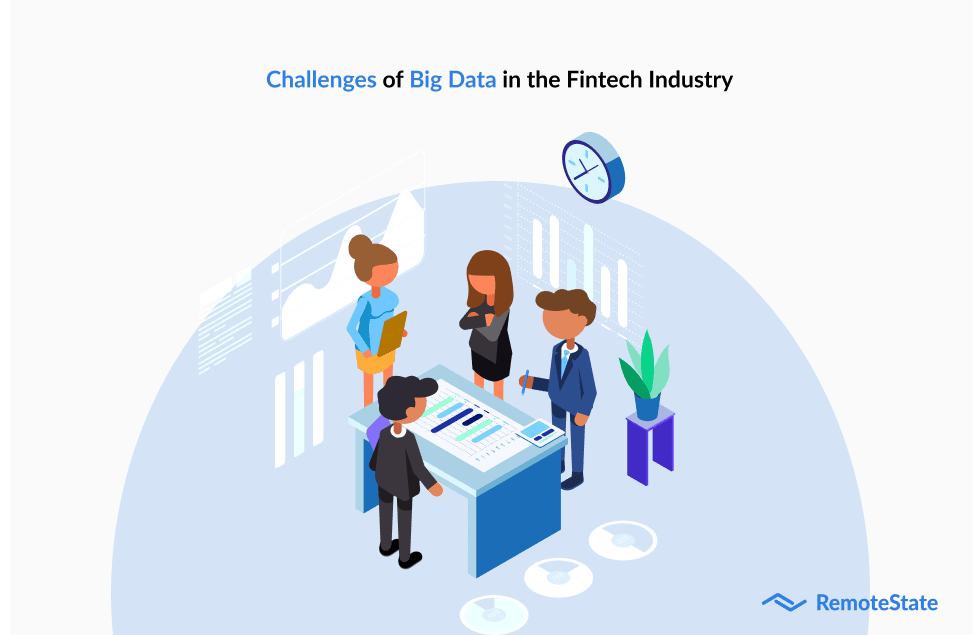Introduction
Financial Technology, commonly known as Fintech, is a rapidly growing industry. Fintech companies use technology to provide financial services, such as banking, investment, and insurance, more efficiently than traditional financial institutions.
Financial Technology, commonly known as Fintech, is a rapidly growing industry. Fintech companies use technology to provide financial services, such as banking, investment, and insurance, more efficiently than traditional financial institutions. In the last few years, the Fintech industry has experienced a massive boom due to the increased availability of data and advancements in Big Data analytics. Big Data plays a significant role in the Fintech industry, offering many benefits, challenges, and opportunities.
In this blog, we will explore the role of Big Data in the Fintech industry. We will discuss different aspects of Big Data, including benefits, challenges, and opportunities. Furthermore, we will also answer some frequently asked questions about Big Data in the Fintech industry.
Benefits of Big Data in the Fintech Industry

Personalization
One of the most significant benefits of Big Data is personalization. Fintech companies collect data from various sources, such as social media, mobile apps, and online transactions, to create a complete profile of their customers. This data allows companies to offer personalized financial products and services that meet the unique needs of their customers.
Improved Decision Making
Big Data provides valuable insights that help Fintech companies make informed decisions. By analyzing large amounts of data, Fintech companies can identify market trends, customer preferences, and potential risks. This information helps companies make data-driven decisions and reduce the risk of financial losses.
Fraud Detection
Fraud detection is another significant benefit of Big Data in the Fintech industry. Fintech companies use machine learning algorithms to analyze customer behavior and detect any suspicious activity. This helps companies prevent fraudulent transactions and protect their customer's financial data.
Better Customer Service
Big Data also enables Fintech companies to provide better customer service. By collecting data on customer behavior and preferences, companies can offer personalized recommendations, provide faster customer support, and resolve customer issues more efficiently.
Cost Savings
Big Data helps Fintech companies reduce costs by automating various processes. For example, companies can use automated chatbots to handle customer inquiries, reducing the need for human customer support agents. Additionally, companies can use predictive analytics to identify potential financial risks, reducing the need for expensive manual risk assessments.
Challenges of Big Data in the Fintech Industry

Data Quality
The quality of data is a significant challenge in the Fintech industry. Fintech companies rely on accurate and reliable data to make informed decisions. However, data quality can be compromised by errors, duplicates, and inconsistencies, leading to inaccurate conclusions and financial losses.
Data Security
Data security is another significant challenge of Big Data in the Fintech industry. Fintech companies collect sensitive customer data, such as personal identification numbers, bank account details, and credit card information. This data must be protected from cyber threats, such as hacking, phishing, and malware attacks.
Compliance
Compliance is a significant challenge for Fintech companies that operate in heavily regulated industries, such as banking and insurance. Fintech companies must comply with various laws and regulations related to data privacy, anti-money laundering, and financial reporting.
Data Integration
Fintech companies collect data from various sources, such as social media, mobile apps, and online transactions. Integrating this data can be a significant challenge, as it may be stored in different formats and structures.
Opportunities of Big Data in the Fintech Industry
Predictive Analytics
Predictive analytics is a significant opportunity for Fintech companies that use Big Data. Predictive analytics uses machine learning algorithms to identify patterns and trends in data, helping companies make informed decisions and predict future outcomes.
Blockchain Technology
Blockchain technology is another significant opportunity for fintech companies that use Big Data. Blockchain is a decentralized and secure ledger technology that allows companies to store and share data securely. Blockchain can improve the security and transparency of financial transactions, making it an attractive option for Fintech companies.
Artificial Intelligence
Artificial Intelligence (AI) is another significant opportunity for Fintech companies that use Big Data. AI uses machine learning algorithms to analyze data and make predictions. Fintech companies can use AI to provide personalized financial products and services, automate customer support, and detect fraud.
Real-time Data Analysis
Real-time data analysis is an opportunity for Fintech companies that use Big Data. Real-time data analysis allows companies to analyze data as it is generated, providing valuable insights into customer behavior and market trends. This information can be used to make informed decisions and improve financial products and services.
Conclusion
Big Data plays a crucial role in the Fintech industry, offering many benefits, challenges, and opportunities. Big Data enables Fintech companies to provide personalized financial products and services, make informed decisions, detect fraud, provide better customer service, and reduce costs. However, Fintech companies must also address data quality, security, compliance, and integration challenges.
Revolutionize your Fintech business with Big Data - Discover how Remotestate can help!
Remotestate is well-equipped to help businesses in the Fintech industry harness the power of Big Data. Our team of skilled developers and data analysts can work with Fintech companies to create custom solutions that leverage Big Data for better decision-making, fraud detection, and personalized customer experiences.
Here are some specific ways in which Remotestate can help Fintech companies with Big Data:
Developing Predictive Analytics Models
Remotestate can create predictive analytics models that use Big Data to identify patterns and trends in customer behavior, market trends, and other data sources. These models can help Fintech companies make data-driven decisions and anticipate future market changes.
Building Blockchain-based Solutions
Remotestate has expertise in building blockchain-based solutions that provide secure, decentralized storage and sharing of financial data. This technology can help Fintech companies improve the security and transparency of financial transactions.
Implementing AI-powered Systems
Remotestate can create AI-powered systems that analyze Big Data to provide personalized financial products and services, automate customer support, and detect fraud. These systems can improve the customer experience and reduce operational costs.
Real-time Data Analysis
Remotestate can help Fintech companies leverage real-time data analysis to gain valuable insights into customer behavior and market trends. This information can be used to make informed decisions and improve financial products and services.
At Remotestate, we understand the challenges and opportunities that come with using Big Data in the Fintech industry. Our team of experts is dedicated to creating customized solutions that address the unique needs of each client.
Contact us today to learn more about how we can help revolutionize your Fintech business with Big Data.
FAQ's
What is Big Data?
Big Data refers to large and complex sets of data that are difficult to process using traditional data processing methods.
How does Big Data benefit the Fintech industry?
Big Data benefits the Fintech industry by enabling personalized financial products and services, improved decision-making, fraud detection, better customer service, and cost savings.
What are the challenges of Big Data in the Fintech industry?
The challenges of Big Data in the Fintech industry include data quality, data security, compliance, and data integration.
What are the opportunities of Big Data in the Fintech industry?
The opportunities of Big Data in the Fintech industry include predictive analytics, blockchain technology, artificial intelligence, and real-time data analysis.
How can Fintech companies address the challenges of Big Data?
Fintech companies can address the challenges of Big Data by implementing data quality controls, enhancing data security measures, complying with regulatory requirements, and using data integration tools.
Publication Date
2023-03-28
Category
Fintech
Author Name
Sajal Nehra


